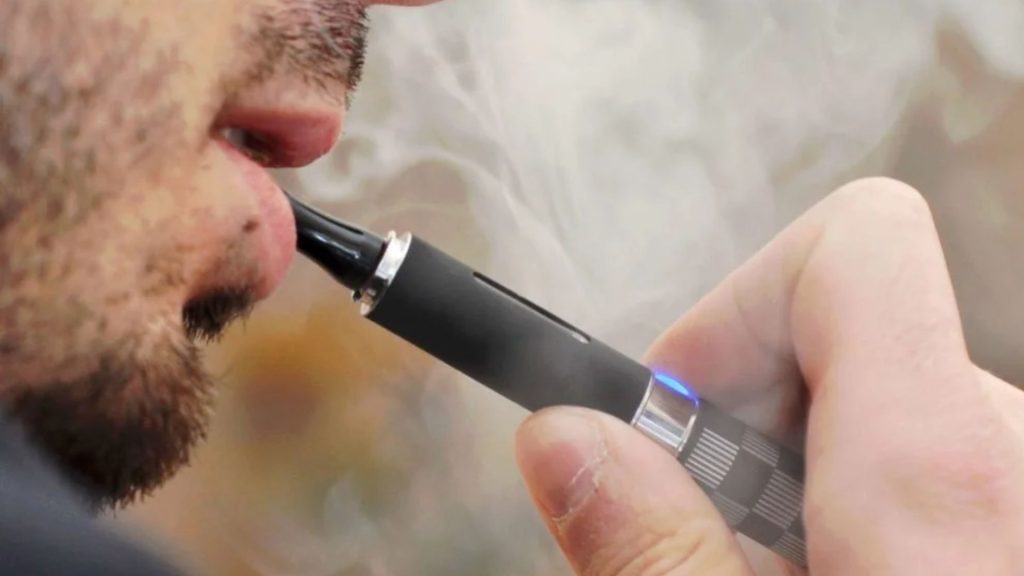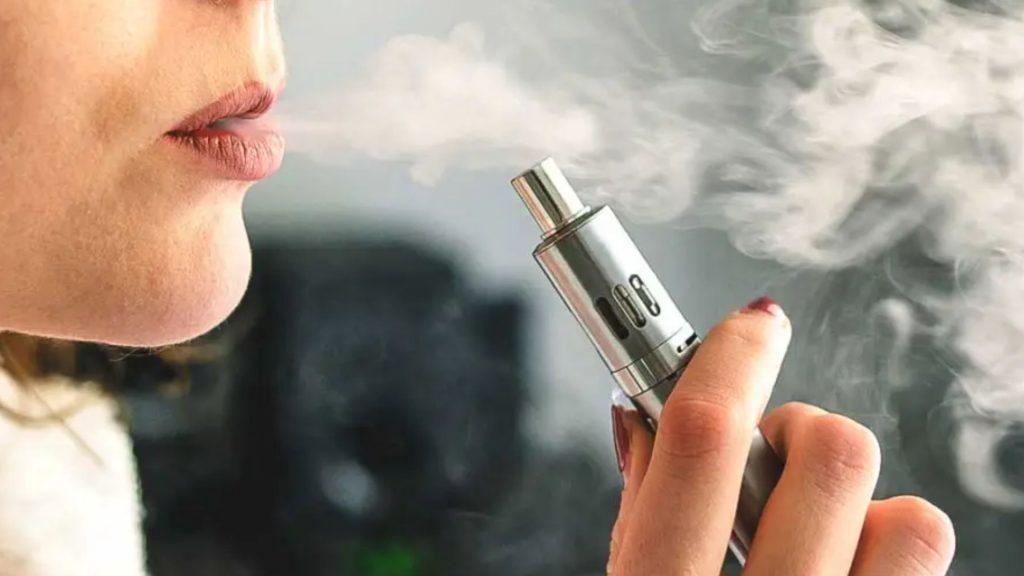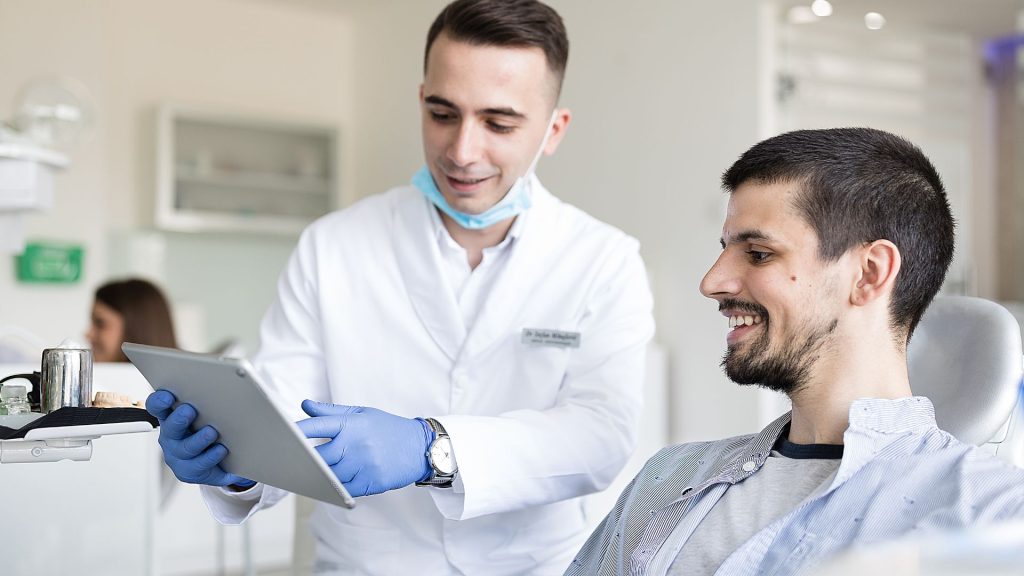Does vaping ruin teeth? Additionally, can electronic cigarette smokers have tooth decay? From this basic inquiry, a multifaceted discussion between vaping’s touted advantages and possible oral health risks emerges. In this post, we’ll examine the effects of vaping on teeth and gums to address this disputed subject. We may make better health and lifestyle choices by knowing vaping’s implications on oral health.
Does Vaping Ruin Teeth?

Several research and reports imply that vaping may harm oral health, but there is no definitive scientific proof that single-pronged vaping causes tooth damage.
Effects Of Vaping Smoking On Teeth And Gums
When it comes to your teeth and gums, vaping might have some unwelcome side effects:
Enamel Erosion
The tooth’s outermost coating, enamel, is made of a hard, nonrenewable material that serves as a protective shield. Enamel protects teeth from germs, acids, and other damaging factors. Enamel loss makes teeth susceptible to decay and gingivitis. Vaping chemicals, including nicotine and other contaminants, may damage tooth enamel. These substances soften tooth enamel by generating an acidic oral environment. Bacteria and acids in food, drink, and saliva damage enamel, making it more prone to erosion. Enamel degradation causes tooth loss and dental issues. In short, it’s crucial to realize that damaged tooth enamel cannot be repaired.
Gingivitis
When you inhale the vapor from a vape, the chemicals and nicotine may irritate and inflame your gums since they come into direct contact with your mouth and throat. Vaping’s chemical components may damage gum tissue, creating these issues:
- Gum irritation: Nicotine and vaping chemicals hurt gums. After brushing or flossing, inflamed gums might swell, redden, and bleed.
- Chronic gum disease: Gingivitis may lead to chronic gum disease if left untreated. If you suffer from chronic gum disease, your gums will become inflamed for an extended period of time, eventually pulling away from the teeth. Retracted gums expose sensitive tooth surfaces, causing tooth loss.
Jawbone Dysfunction
There is not yet much research on how vaping affects the jaw. However, research on the impact of e-cigarette smoking on oral health has shown some possible consequences on the jawbone and bone structure surrounding the teeth. Vaping substances, including nicotine and contaminants, may damage the jawbone:
- Bone loss: Nicotine and chemicals in vaping may damage oral bone glands, causing bone loss. Jawbone loss may cause tooth instability and failure.
- Reduced bone density: E-cigarette use may impair jaw bone density in young people, according to much research. Low bone density increases tooth loss and impairs chewing.
- Impact on recovery from dental surgery: The healing process following dental surgery may be slowed by vaping. Vaping slows healing and increases post-surgery risks.
Oral Mucosa Damage
Oral mucosa covers the lips, tongue, gums, abdominal cavity, and other sensitive surfaces. Vapor includes chemicals, nicotine, and contaminants that may harm the mouth lining and cause the following issues:
- Oral mucositis: The tissue may get irritated and inflamed by vaping. Pain in the mouth and trouble eating are only two symptoms of oral mucositis, inflammation and swelling of the tissue lining the mouth.
- Injury to the oral mucosa: Hot vaping fumes and chemicals may directly harm the oral mucosa, producing sores, swelling, and thinning and vulnerability.
- Increased risk of mucositis: Vaping raises the risk of developing oral mucositis. Persistent oral mucositis needs expert therapy.
- Effects of Chemical Compounds: Vaping chemicals may irritate and damage the oral lining over time.
Is There A Mouth-Safe Vaping Alternative?
Those concerned about their dental health have several less hazardous options than vaping. Those who are worried about their dental health and their stress levels should think twice before turning to electronic cigarettes or vaping. Some secure oral alternatives are listed below:
- Herbs and chews: Cactus, birch, and anise may help you relax. Chewing mint or sage relieves tension and freshens breath.
- Sugar-free gum: After meals, chewing sugar-free gum may increase saliva production and help remove plaque.
- Harmless foods and drinks: Avoid sweet chewy meals, fizzy beverages, and high-sugar foods. Instead, pick green vegetables, fruits, sugar-free drinks, and calcium-rich diets to safeguard your mouth health.
- Practice healthy habits: Reduce stress and exercise regularly. This boosts dental and general wellness.
How To Protect Oral Health When Smoking Vaping?

The following are some things you can take to lessen the impact of vaping on your teeth and gums:
- Limit nicotine and vaping: Try cutting down or quitting vaping. Reduce the risk of damage to your teeth and gums by cutting down on how often you vape.
- Daily oral care: Use fluoride toothpaste and a little jelly floss to clean between teeth twice a day. This reduces tooth decay and gingivitis by removing germs and deposits.
- Regular dental cleanings: Maintaining healthy teeth and gums is facilitated by regular dental checkups, during which the dentist may assess your oral health and remove any harmful buildups.
- Drink water after each puff: If you can’t quit vaping, drink water afterward to wash out toxins and lessen the harm risk.
- Avoid vaping before bed: Vaping before night reduces saliva production, causes dry mouth, and increases tooth decay.
- Use non-nicotine e-cigarettes: Nicotine-free e-cigarettes may help you quit vaping. However, these products may harm oral health.
Conclusion

To conclude, vaping may damage oral health. Vaping damages teeth enamel causes gingivitis, reduces bone density, and affects tooth stability. In addition, the chance of developing oral health issues is increased because of the damage done to the mouth’s lining by vaping. Proper dental hygiene is essential for oral health and a bright smile. At the very least, you should brush your teeth twice daily, use a tiny amount of jelly to clean in between your teeth, and see your dentist often. Moreover, the dental check-ups at Spring Orchid Dental are always available to meet with and advise patients in order to help them take the best possible care of their teeth. Spring Orchid dentistry clinic provides high-quality, safe dental care using the latest equipment and techniques. Professional dentists will help you keep a healthy smile and dental health here.
FAQs
Is It Safe To Vape Every Day?
Several variables are linked to both smoking and vaping, but there isn’t enough long-term and thorough information to say which is worse for teeth. Even though tobacco cigarettes contain more toxic chemicals, vaping may nonetheless damage your teeth and gums. It’s crucial to realize that both types may damage teeth and gums, therefore the best method to maintain oral health is to avoid both. Even though e-cigarettes contain more toxic chemicals, vaping may nonetheless damage your teeth and gums. Both types may damage teeth and gums, therefore avoiding both is recommended for oral health.
Is Flavored Vape Harmful?
Medical and scientific researchers disagree on whether vaping flavors are dangerous. There is not enough long-term and thorough data to prove all vape flavors are dangerous. There are several caveats:
- Flavoring agents: Medical and scientific researchers disagree on whether vaping flavors are dangerous. There is not enough long-term and thorough data to prove all vape flavors are dangerous. There are several caveats:
- Chemical reactions: Vaping may create hazardous chemicals from flavors and other vape vapor components. Some vape flavors release carcinogens or respiratory irritants, according to research.
- Lack of control and information: The lack of chemical control and transparency in vape goods is a problem. Users of vaping products may not always be aware of the precise chemicals and flavorings they are inhaling due to the lack of regulation in the industry’s infant stages of growth.
Is Nicotine-Free Vaping Safe?
Nicotine-free vaping is safer than nicotine-containing vaping, but there are still various things to consider. Note these:
- Other Chemical Content: Vape vapor, which is nicotine-free, includes flavoring agents and other components from the vape solution. Some may affect the tongue and lungs.
- Chemical reactions: Chemical processes may form hazardous compounds in vape vapor and its components. These compounds influence oral and respiratory health.
- Research and validation: The health issue of vaping is still being researched and debated. There is not enough long-term and comprehensive evidence to draw clear conclusions about the safety of non-nicotine vaping.
- Lack of control and information: Some vape goods don’t disclose enough about their components. This makes it hard for vape users to identify the compounds they inhale.





